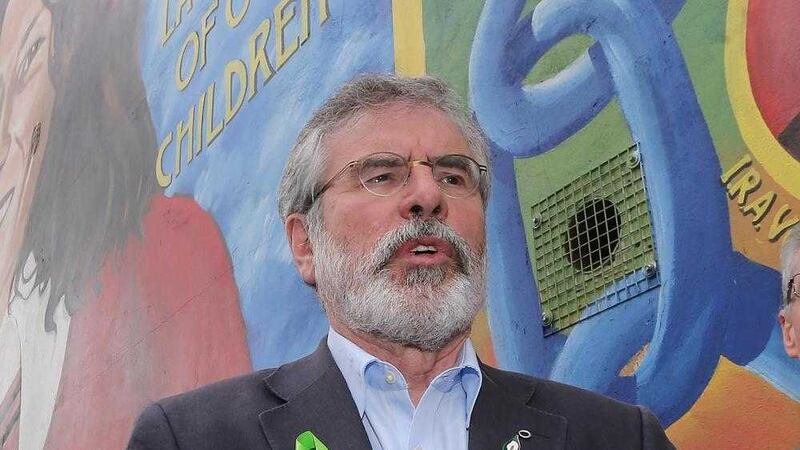GERRY Adams and David Cameron singing from the same hymn sheet while Jim Allister joins committed Marxists in rubbishing their claims that a Brexit will spell disaster.
We're not through the looking glass but reaching the climax in what is arguably the most important referendum campaign in recent history.
The campaign has been notable in that the north's traditional binary battle lines have been blurred with odd, informal alliances struck.
We have trade unions whose members would largely be pro-EU backing Brexit, while the Brussels-bashing farming lobby sides with the Remain camp, albeit with little enthusiasm.
While many of those on both sides of the debate are unlikely to highlight the fact that they are sharing a bed with long-time adversaries, they appear happy to count on the votes cast by their unlikely allies' supporters.
Lobbyist Quintin Oliver says such situations are not uncommon when it comes to referenda. He should know, having been involved in the post-Good Friday Agreement vote, 2014's poll on Scottish independence and more than two dozen other referenda across Europe and beyond.
"It's not unusual for referendums to generate strange alliances because there is only one choice in the grammatical sense and therefore people coalesce in odd ways," he says.
"For example, in the Good Friday Agreement referendum Bernadette McAliskey and Eamonn McCann sided with Ian Paisley and Robert McCartney – the ultra right side-by-side with the ultra left."
Likewise, ahead of the Scottish referendum two years ago, Labour and the Liberal Democrats joined forces with the Conservatives to campaign against independence, while the Republic's 1992 referendum on abortion saw both pro-life and pro-choice groups arguing for the same outcome – the former because they believed the legislation was too liberal, the latter too restrictive.
Opposing views within political parties are also commonplace, Mr Oliver says, so we shouldn't be too surprised to see former Ulster Unionist leader Tom Elliott breaking ranks, though to date the north's other parties appear to have whipped their representatives into line.
"Splits within parties are to be expected, as referenda are often about sorting out disputes within parties," he says.
"In Sinn Féin for example I'm sure there are traditional 'ourselves alone' types who are biting their lips when they see Adams and McGuinness on the same side as the Tory leadership, but party discipline applies."
Business groups too seem universally in favour of remaining in the EU, although individual businesspeople, such as Wrightbus founder William Wright and healthcare entrepreneur Irwin Armstrong, are vocal in their support for a Brexit.
Ironically, these self-professed capitalists are seeking the same goal as the revolutionary socialists in Éirígí and People Before Profit.
"We wouldn't see ourselves as aligned with Nigel Farage and the like, though we are both advocating the same thing," says Brian Leeson of Éirígí.
"Referenda can be peculiar in that you can have people from opposite ends of the political spectrum calling for the same vote but in such circumstances you can't choose your bedfellows."
Éirígí represents a minority voice in Irish nationalism given that the Republic's two main parties have campaigned against Brexit and north of the border both Sinn Féin and the SDLP are firmly in the remain camp.
Opinion within unionism is much more divided, however, with the DUP advocating a break with Brussels and the UUP supporting the status quo.
While the choice next Thursday may be binary, the thinking behind the various threads in the debate is complex.
Whatever the outcome of the referendum we can be sure that the respective campaigns' supporters are unlikely to align like this again.



